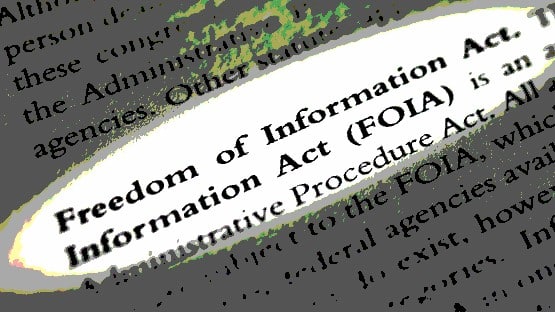
A district court judge has delayed issuing a ruling in the challenge of Augusta County’s denial of a Freedom of Information Act request for access to a recording of a March 20 closed session of the Board of Supervisors.
Judge Rupen R. Shah had been set to hand down a ruling in the matter on Thursday morning, but continued the case to Oct. 12, citing two outstanding unresolved issues among the legal arguments made in a Sept. 5 hearing.
I’m the plaintiff in this case, in which I am challenging the county’s decision to deny me access to the recording of the March 20 closed session that was made by Scott Seaton, who represents the Wayne District on the Board of Supervisors.
The existence of the recording became public knowledge in May, as part of the ongoing spat between Seaton and the rest of the BOS over fees collected by the regional animal shelter that Seaton has said are not authorized by county or state law.
The Board of Supervisors requested in August that Seaton turn over recordings that he had made of BOS public and closed sessions dating back to 2020.
Subsequent to that, I filed a request with the county under the Virginia Freedom of Information Act for access to all of the closed-session recordings, and a separate request specifically for the recording of the March 20 session, which Michael Shull, the chair of the Board of Supervisors, had apparently inadvertently confirmed in a July 13 BOS meeting included a discussion of the resignation of Steven Morelli, who had been elected to the South River District seat on the board in 2019.
Shah, speaking in court on Thursday, confirmed that he has listened, under supervision, to the recording of the March 20 closed session, and noted that the legal hangup at this stage involves two matters: the language in the resolution approved by the board to go into closed session, and the effective date of Morelli’s resignation from the board.
On the first issue, according to the minutes of the March 20 meeting, the Board of Supervisors cited the personnel exemption under Virginia Code section 2.2-3711 (A)(1) as it moved to go into closed session – the minutes spelling out that the exemption would be “discussion, consideration or interviews of (a) prospective candidates for employment, or (b) assignment, appointment, promotion, performance, demotion, salaries, disciplining or resignation of specific employees.”
The code section cited actually allows, more broadly, closed-session discussions of “specific public officers, appointees, or employees of any public body,” and a 2003 advisory opinion from the Virginia Freedom of Information Advisory Council tells us that “(i)f a public body has the authority to censure, reprimand or otherwise discipline a fellow member of the elected body, then it may exercise this exemption to discuss the performance and subsequent discipline of the member.”
The motion made by the BOS to go into closed session, and which was approved by the board after the closed session, did not cite “specific public officers,” just “specific employees.”
At issue is whether a member of the Board of Supervisors should be considered an “employee” or a “public officer.”
On the second issue: Morelli had already resigned his office before the closed meeting. Meaning the board could no longer “censure, reprimand or otherwise discipline” Morelli in his capacity as a “public officer,” even if it had made it public that it was doing so in its resolution to go into closed session, because he was no longer a “public officer.”
The county, in the Sept. 5 hearing in Augusta County General District Court, cited a state code section, 24.2-226, which is titled “Election to fill vacancy,” to make the claim that though Morelli had resigned his seat before the meeting, his status was still in a sort of limbo.
From subsection (a) of 24.2-226: “The officer’s or officer-elect’s resignation shall not be revocable after the date stated by him for his resignation or after the forty-fifth day before the date set for the special election.”
The county’s contention: because Morelli could still revoke his resignation, which according to his statement of resignation was to take effect “immediately,” until midnight on March 20, he was still technically a public officer until midnight on March 20.










